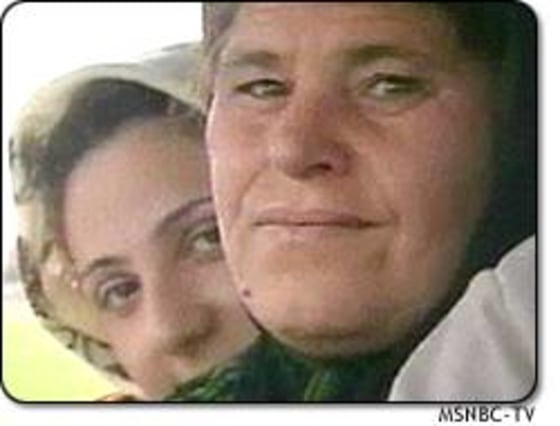As a steady flow of Iraqis headed north through this front-line town Tuesday, hoping to escape a showdown between Washington and Saddam Hussein, Gul Akhmad paused to survey her own precarious situation. Then she cried. Long on the run from Saddam Hussein’s forces, Akhmad and her family have barely settled into their new tent in a refugee camp here. Now a new war will likely force her to pack her family’s belongings again. But this time Gul Akhmad has nowhere to go.
Akmad, leading a visitor to the 8-foot by 10-foot dwelling she shares with four other family members, shuddered at the thought of moving again.
“Everything I own — everything — is in these bags here,” she said, gesturing to a dozen burlap sacks filled with her family’s belongings and foodstuffs. “We have nowhere else to go.”
Akhmad’s story has a familiar refrain in Iraq’s north, where some 800,000 — nearly a quarter of the population of three provinces — have been displaced by the Iraqi ruler’s repressive policies.
Of the displaced Kurds, over 100,000 come from Kirkuk, relief officials say, fleeing Saddam’s enforced “Arabization” of the oil-rich, historically Kurdish city.
After decades on the run from Saddam’s military and intelligence agents, Kurds from Kirkuk, impoverished by their frequent flight, are finding they have few options as another conflict in Iraq looms.
LIFE OF FLIGHT
The Akhmad family typifies the plight of Kurds from Kirkuk. In the 1980s, the Akhmads lost relatives in Saddam’s “Anfal” campaign of ethnic cleansing, which destroyed 4,500 villages, mostly Kurdish, and unleashed chemical attacks on Kurdish civilians. Tens of thousands were killed or disappeared.
In 1991, as the Gulf War began, the Akhmads left their home in Kirkuk, returning after the war to a city under the tight control of Saddam’s forces, who regularly harassed the family.
Then, in 2000, Saddam’s intelligence agents presented the Akhmads with “nationality correction cards.” If they did not take Arabic names, they would be forced to leave.
And leave they did — in a vehicle provided by the Baghdad government. They were dropped off, with their few sacks of belongings, on the Iraqi front line.
Until three months ago, the Akhmads languished in a refugee camp near the front line, where they still did not feel safe. With the help of an international aid organization, they moved to Takia and tried to settle into a white U.N. tent.
Now, with another Iraq conflict on the horizon, the Akhmads are stuck.
Living off handouts, and with no car or income, they can scarcely contemplate moving again. Others displaced by Saddam are seeking refuge with relatives in other villages. But the villages the Akhmads know near Kirkuk are off limits.
HEADING NORTH
On Monday, thousands of Kurds from Kirkuk crossed into Kurdish-controlled northern Iraq, a safe haven protected from Saddam by the U.S. and British “no-fly” zone.
Several of those seeking refuge spoke of a stepped-up campaign of intimidation in Kirkuk, including the arrest of young men in the city.
Relief workers say it’s difficult to gauge the impact of another war in Iraq, which is expected to displace hundreds of thousands, depending on the length and nature of a U.S.-led attack.
Few Kurds will complain about the Bush administration’s goal of “regime change” in Iraq, no matter the consequences. But years of flight takes its toll.
Mikail Sabr was 9 when Saddam’s ethnic cleansing campaign leveled his village of Bedar. With little warning, troops with bulldozers and explosives destroyed his boyhood home.
A refugee’s life is all Sabr knows, living 14 years in Takia with others displaced by Saddam’s policies. With another war almost certain, Sabr and his family have decided to return to the shambles of their birthplace, Bedar, where there is no longer shelter or food to greet them.
“It’s a place we know,” he said as he loaded the family’s belongings onto a tractor. “Otherwise, we have no place to go.”
(MSNBC.com’s Preston Mendenhall is on assignment in Iraq. )
